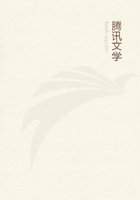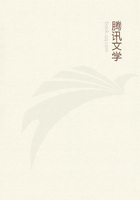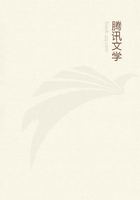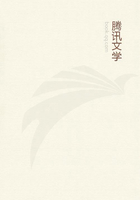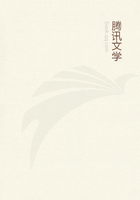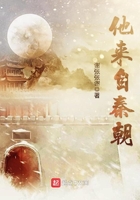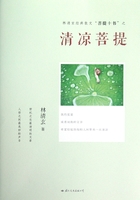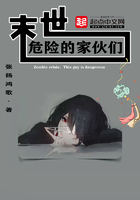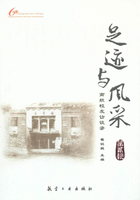I have dwelt so long on this subject that I must contract what I have to say in reference to my translation, unless I would swell my preface into a volume, and make it formidable to your lordship, when you see so many pages yet behind. And, indeed, what I have already written, either in justification or praise of Virgil, is against myself for presuming to copy in my coarse English the thoughts and beautiful expressions of this inimitable poet, who flourished in an age when his language was brought to its last perfection, for which it was particularly owing to him and Horace. I will give your lordship my opinion that those two friends had consulted each other's judgment wherein they should endeavour to excel; and they seem to have pitched on propriety of thought, elegance of words, and harmony of numbers. According to this model, Horace wrote his odes and epodes; for his satires and epistles, being intended wholly for instruction, required another style -
"Ornari res ipsa negat, contenta doceri" - and therefore, as he himself professes, are sermoni propriora (nearer prose than verse). But Virgil, who never attempted the lyric verse, is everywhere elegant, sweet, and flowing in his hexameters. His words are not only chosen, but the places in which he ranks them for the sound; he who removes them from the station wherein their master sets them spoils the harmony. What he says of the Sibyl's prophecies may be as properly applied to every word of his--they must be read in order as they lie; the least breath discomposes them, and somewhat of their divinity is lost. I cannot boast that I have been thus exact in my verses; but I have endeavoured to follow the example of my master, and am the first Englishman perhaps who made it his design to copy him in his numbers, his choice of words, and his placing them for the sweetness of the sound. On this last consideration I have shunned the caesura as much as possibly I could; for wherever that is used, it gives a roughness to the verse, of which we can have little need in a language which is overstocked with consonants. Such is not the Latin where the vowels and consonants are mixed in proportion to each other; yet Virgil judged the vowels to have somewhat of an over-balance, and therefore tempers their sweetness with caesuras.
Such difference there is in tongues that the same figure which roughens one, gives majesty to another; and that was it which Virgil studied in his verses. Ovid uses it but rarely; and hence it is that his versification cannot so properly be called sweet as luscious. The Italians are forced upon it once or twice in every line, because they have a redundancy of vowels in their language; their metal is so soft that it will not coin without alloy to harden it. On the other side, for the reason already named, it is all we can do to give sufficient sweetness to our language; we must not only choose our words for elegance, but for sound--to perform which a mastery in the language is required; the poet must have a magazine of words, and have the art to manage his few vowels to the best advantage, that they may go the farther. He must also know the nature of the vowels--which are more sonorous, and which more soft and sweet--and so dispose them as his present occasions require; all which, and a thousand secrets of versification beside, he may learn from Virgil, if he will take him for his guide. If he be above Virgil, and is resolved to follow his own verve (as the French call it), the proverb will fall heavily upon him: "Who teaches himself has a fool for his master."
Virgil employed eleven years upon his "AEneis," yet he left it, as he thought himself, imperfect; which, when I seriously consider, I wish that, instead of three years which I have spent in the translation of his works, I had four years more allowed me to correct my errors, that I might make my version somewhat more tolerable than it is; for a poet cannot have too great a reverence for his readers if he expects his labours should survive him. Yet I will neither plead my age nor sickness in excuse of the faults which I have made. That I wanted time is all I have to say; for some of my subscribers grew so clamorous that I could no longer defer the publication. I hope, from the candour of your lordship, and your often-experienced goodness to me, that if the faults are not too many you will make allowances, with Horace:-
"Si plura nitent in carmine, non ego paucis Offendar maculis, quas aut incuria fudit, Aut humana parum cavit natura."
You may please also to observe that there is not, to the best of my remembrance, one vowel gaping on another for want of a caesura in this whole poem. But where a vowel ends a word the next begins either with a consonant or what is its equivalent; for our w and h aspirate, and our diphthongs, are plainly such. The greatest latitude I take is in the letter y when it concludes a word and the first syllable of the next begins with a vowel. Neither need I have called this a latitude, which is only an explanation of this general rule--that no vowel can be cut off before another when we cannot sink the pronunciation of it, as he, she, me, I, &c. Virgil thinks it sometimes a beauty to imitate the licence of the Greeks, and leave two vowels opening on each other, as in that verse of the third pastoral--"Et succus pecori, et lac subducitur agnis."
But nobis non licet esse tam disertis--at least, if we study to refine our numbers. I have long had by me the materials of an English "Prosodia," containing all the mechanical rules of versification, wherein I have treated with some exactness of the feet, the quantities, and the pauses. The French and Italians know nothing of the two first--at least, their best poets have not practised them. As for the pauses, Malherbe first brought them into France within this last century, and we see how they adorn their Alexandrines. But as Virgil propounds a riddle which he leaves unsolved -

